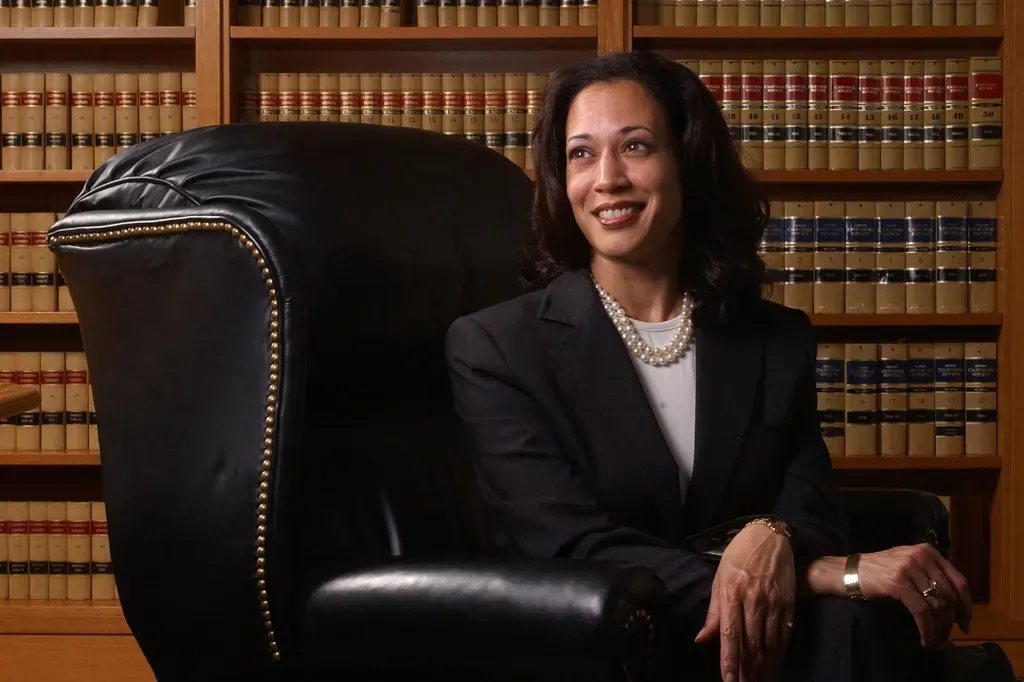Kamala Harris: A California Legacy

Kamala Harris' political career is deeply rooted in California's diverse and dynamic political landscape. Born in Oakland and raised in Berkeley, Harris' ascent from a local prosecutor to Vice President of the United States has been marked by both accomplishments and controversies. As she steps into the spotlight as the Democratic Party's potential presidential nominee for 2024, understanding her record in California offers crucial insights into what her presidency might look like.
Early Life and Career: Shaping Principles
Harris' biography is distinctly Californian. Born to immigrant parents who met while protesting for civil rights at UC Berkeley, Harris was immersed in a culture of activism and social justice from an early age. Her childhood experiences in Berkeley, including being bussed to an integrated school, shaped her views on equality and justice.
After earning her law degree from UC Hastings, Harris began her career as a deputy district attorney in Alameda County, focusing on cases of child exploitation and sexual abuse. Her early career set the tone for her focus on public safety and justice reform, themes that would recur throughout her political journey.
District Attorney of San Francisco: A Progressive Prosecutor?
In 2003, Harris was elected as San Francisco's District Attorney, where she served two terms. Her tenure was characterized by a blend of traditional prosecutorial rigor and innovative approaches to crime prevention. One of her hallmark initiatives was the "Back on Track" program, which offered first-time drug offenders a chance at rehabilitation through education and job training instead of incarceration. This program was lauded for reducing recidivism and became a model for similar programs nationwide.
However, Harris' record was not without controversy. She faced criticism for her office's handling of a scandal involving a crime lab technician accused of tampering with evidence. Critics argued that her office was slow to disclose the issue, leading to the dismissal of numerous cases. This incident highlighted challenges in transparency and accountability that opponents have continued to reference.
Attorney General of California: Tough on Crime and Civil Rights Advocate
Harris' election as California's Attorney General in 2010 marked her rise to statewide prominence. As the state's top law enforcement officer, she navigated a complex landscape of criminal justice reform and public safety. She championed the "Smart on Crime" approach, advocating for policies that focused on prevention and rehabilitation, especially for non-violent offenders.
Her tenure saw significant achievements, including the implementation of a state-wide program modeled after "Back on Track" and efforts to combat human trafficking and sex crimes. Harris also played a crucial role in defending California's progressive laws, such as same-sex marriage and environmental regulations, against federal challenges.
Yet, her record as Attorney General was also marked by decisions that sparked debate. Harris's office appealed a federal judge's ruling that California's death penalty system was unconstitutional, a move that seemed at odds with her personal opposition to capital punishment. She later clarified that her role required her to uphold state laws, even those she personally disagreed with.
Senator and Vice President: National Influence
Harris's election to the U.S. Senate in 2016 further elevated her profile. In the Senate, she continued to advocate for criminal justice reform, immigration rights, and healthcare access. Her prosecutorial background was evident in her sharp questioning during Senate hearings, earning her a reputation as a formidable and articulate lawmaker.
As Vice President, Harris has faced both heightened scrutiny and new opportunities. Her role has included significant responsibilities, such as addressing the root causes of migration from Central America and leading the administration's efforts on voting rights. However, her tenure has not been without criticism, particularly regarding her handling of complex policy challenges and public communication.
The 2024 Presidential Bid: Strengths and Challenges
As Harris positions herself for a potential presidential run in 2024, her California record will undoubtedly be both an asset and a point of contention. Her experience in tackling systemic issues like criminal justice reform, public safety, and civil rights provides a strong foundation for her candidacy. Voters who value her progressive stance on social justice and her pragmatic approach to governance may find her background appealing.
However, her record also presents vulnerabilities. Critics will likely revisit controversies from her time as District Attorney and Attorney General, questioning her decisions on transparency and accountability. Additionally, Harris' ability to unify the Democratic base and appeal to a broader electorate remains a critical factor in her potential success.
A California Legacy on the National Stage
Kamala Harris' journey from California's local politics to the national stage encapsulates a blend of pioneering achievements and contentious moments. As she steps into the 2024 presidential race, her record in California will serve as both a testament to her capabilities and a lens through which voters will scrutinize her candidacy. Whether her California legacy will propel her to the presidency or hinder her ambition depends on how she navigates the complex landscape of American politics in the coming months.
